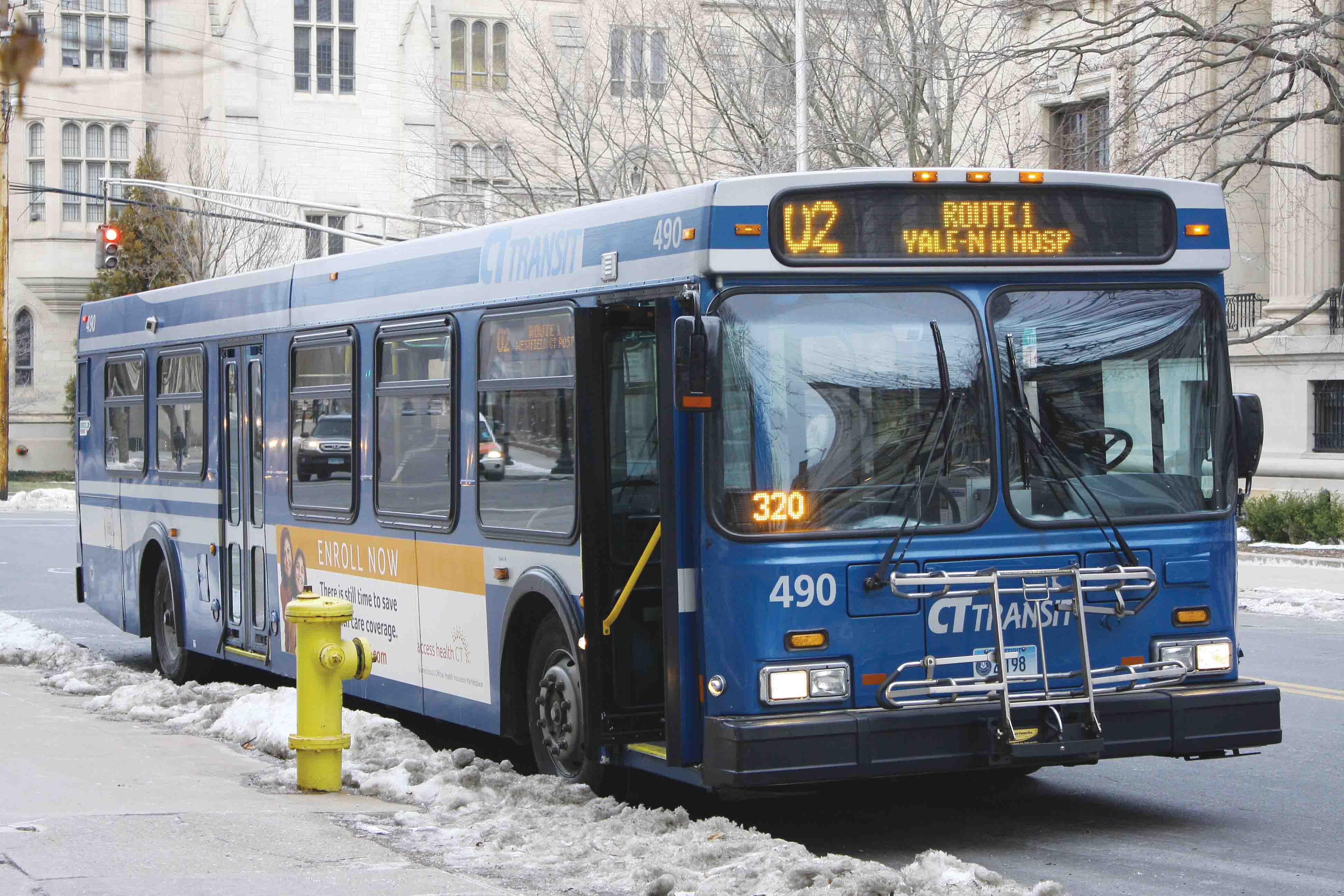
As February comes to a close, the promise of GPS technology in CT Transit buses has missed its deadline once again. The latest completion date set by the state Department of Transportation was February 2017, which had already been pushed several times since two years ago.
The GPS system, designed to push information about bus wait times to riders’ cell phones, was initially supposed to be implemented by the end of 2015, but the state extended the deadline to early 2016, late 2016 and, most recently, February 2017. As CT Transit buses are frequently delayed, the GPS system would enable passengers to plan their transportation in a more organized fashion.
Now, as the last day of February comes and goes, Doug Hausladen ’04, New Haven’s director of public transportation, traffic and parking, said he does not know of any new developments in the project.
“Unfortunately, I am not aware of any updates that are different from February,” Hauslauden said.
Though all of New Haven’s 129 CT Transit buses contain the equipment necessary to install the GPS system, problems such as a lack of a centralized system and different kinds of buses have stalled the effort and led to more delays, according to the DOT.
According to the New Haven Independent, the Connecticut Department of Transportation had originally planned to start the GPS service in New Haven after New Haven officials “blasted the state for its poor bus service.” However, the department started the service in Hartford instead, where it is still in operation.
In early January, state Senate President Pro-Tempore Martin Looney, D-New Haven, wrote a letter to state DOT Commissioner James Redeker expressing his concerns with the delays and imploring that the transportation department install the GPS systems as soon as possible.
“People who depend on bus services to get to school, get to work or bring their families to the doctor are stuck with a system that continues to be unreliable and unpredictable,” Looney wrote.
He called the delays “unacceptable” and said that even though New Haven represents 23 percent of the bus ridership in Connecticut, it has only 7 percent of the bus routes. On the other hand, Hartford carries 35 percent of the bus ridership but has 28 percent of the routes. As a result, New Haven’s bus system is “overburdened,” Looney said.
Despite Looney and other city officials’ continued attempts to end the delays, no progress has been made.
Minh Vu ’20 expressed concern with the lack of a GPS system for CT Transit buses, and added that he would have to adapt in case Yale Shuttles did not have the system. The Yale Shuttle system, which uses a GPS system, is a model for how the tracking system helps residents and students more efficiently plan their days.
“I’d have to plan my day with a more regimented schedule rather than having it handy on my phone,” Vu said.
New Haven riders have almost 10 million annual trips on the CT Transit buses, according to Looney.
Correction, Feb. 28: A previous version of this article incorrectly stated that the city extended the deadline to implement the GPS system. In fact, it was the state that extended the deadline.







